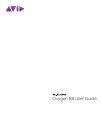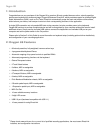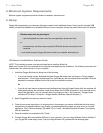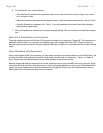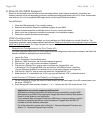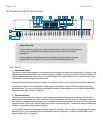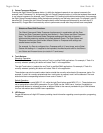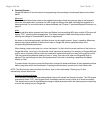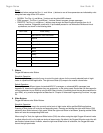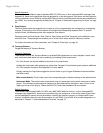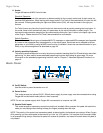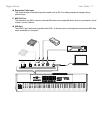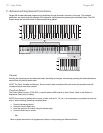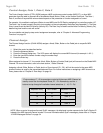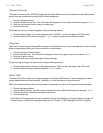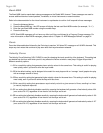
Oxygen 88 User Guide 5
6: Controls and Connectors
Top Panel
1. Modulation Wheel:
This wheel is used to add expression to performances by changing the intensity of certain effects. By default, most
synthesizers assign this wheel to control vibrato (change in intonation) or tremolo (change in volume). However it is
usually possible to reassign the function of this wheel using the on-screen controls on a virtual instrument, or the
front panel of a hardware synth or sound module.
Rolling the Modulation Wheel upward increases the modulation effect, while rolling downward reduces the effect.
The Modulation Wheel is an assignable controller capable of sending a variety of MIDI messages other than
Modulation data. For a list of parameters the Modulation wheel can be assigned to, see "Chapter Standard MIDI
Control Numbers (MIDI CCs)" on page 40.
2. Pitch Bend Wheel:
This wheel creates expressive changes in performances by raising and lowering pitch. Rolling the Pitch Bend
wheel upward will raise the pitch of an instrument. Rolling it downward will lower the pitch. The upper and lower
pitch bend limit is determined by settings on your hardware or software synthesizer, not by the Pitch Bend wheel on
Oxygen 88 itself. Typically, this can be either a half note or an octave up/down. This wheel is spring-mounted and
will return to the center position when released.
The Pitch Bend wheel is an assignable controller capable of sending a variety of MIDI messages other than pitch
bend data. For a list of parameters the Pitch Bend wheel can be assigned to, "Chapter Standard MIDI Control
Numbers (MIDI CCs)" on page 40.
About DirectLink:
Once installed and configured, DirectLink automatically maps many of the top panel
controls of Oxygen 88 to their corresponding functions in qualified recording
applications.
Where applicable, the following section will explain both the operation of these
controls when using DirectLink, as well as their default MIDI assignments.



